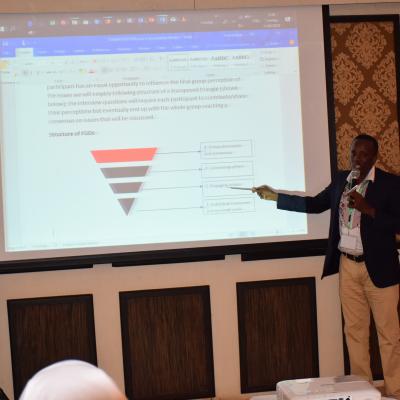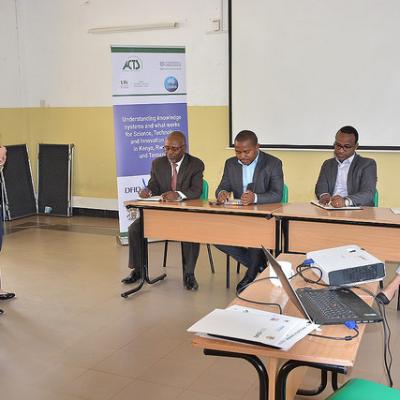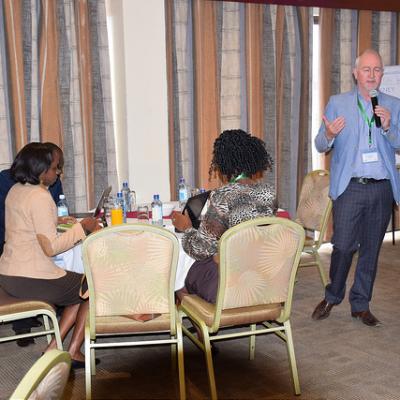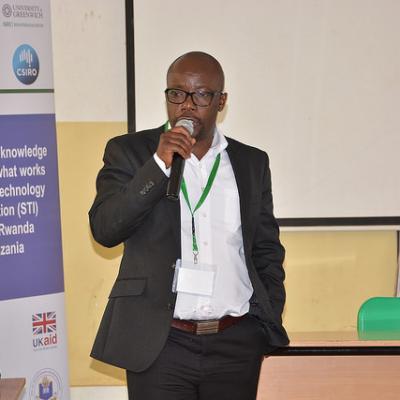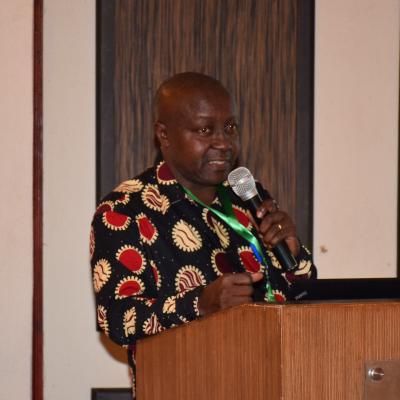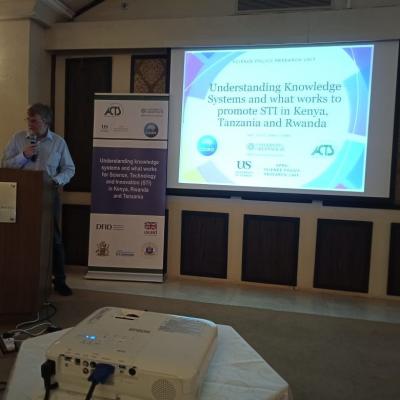Leah Mwai, DFID East Africa Research Hub Nairobi, Kenya and Nora Ndege, African Centre for Technology Studies, Nairobi, Kenya.
The Science Granting Councils Initiative in sub-Saharan Africa (SGCI) aims to strengthen the capacities of science granting councils to support research and evidence-based policies that will contribute to economic and social development. SGCI annual forums support and strengthen the voices and views of the SGCs, and contribute to key Science, Technology and Innovation (ST&I) policy debates at regional and continental levels.
As part of their efforts towards advancing their collective investments in ST&I, several heads of African SGCs, policymakers, international funders, researchers, think tanks groups and key national and regional ST&I stakeholders in Africa convened at the Science Granting Councils Initiative (SGCI) 2019 annual forum in Dar es Salaam. They discussed the latest local and regional evidence on investing in ST&I and proposed some practical recommendations for steering and fostering effective collaborative investments for sustainable development.
Why should we enhance investments in Research and Innovation for Sustainable Development in Africa?
African-led investments in ST&I could potentially yield significant benefits towards sustainable socio-economic growth and poverty reduction. In line with their sustainable development goal targets, many African governments are promoting the development of new ST&I policies in line with the African Union (AU) Strategy of Africa 2024 STISA-2024 and the AU agenda 2063. These new ST&I policies advocate for increased public investments in research and development from the current 0.6 percent to about 1–2 percent. Yet, there is a risk that unless important systemic challenges are addressed, this increased momentum will not secure the desired social, economic and environmental sustainability goals.
What are the key challenges in effectively investing in research and innovation in Africa?
A key overarching challenge is that most ST&I investments in Africa are predominantly driven and informed by perspectives and experiences from outside Africa, and particularly from developed country contexts. Yet, innovation and impact processes are highly contextual, and frameworks developed for developed countries may not necessarily suit the needs of Low- and Middle-Income Countries (LMICs).
Another challenge is the often-weak links between research, innovation and development initiatives, programs and policies. Evidently, for ST&I to yield optimal benefits for African economies, there is a need to enhance coherence and alignment between ST&I -policies and programs, and national, regional and global development priorities.
What does contextual evidence show?
The forum examined the following evidence informed directly or generated from the African context:
A Wellcome Trust funded study conducted by Jones et al. highlighted practical lessons on how the Ebola crisis in West Africa provided a crucial strategic window of opportunity to catalyse local and international partnerships and strengthen research and health system capacity in affected countries. The presenters emphasized the importance of investing in local leadership and coordination to safeguard the success and sustainability of investments.
A study on ‘Doing Research Assessments: understanding research systems in developing countries ‘ highlighted existing opportunities for Science Granting Councils (SGCs) and other national and regional ST&I stakeholders to experiment with and advance practical ,non-traditional, contextually-relevant frameworks for promoting local understanding of research, documenting impact and ensuring that research investments effectively feed into public and policy discourse . Examples of such frameworks have been pilot-tested in Niger, South Africa, Cameroon and Cote d’Ivoire.
The Knowledge Systems Innovation study team presented an emerging conceptual framework for broadening the objectives of ST&I beyond the narrow focus of scientific research excellence and commercialization to encompass an inclusive and diverse knowledge production and use process that better serves societal goals. The study identified several critical interventions needed to promote synergy and maximize impact including strengthening capabilities for knowledge management and utilization and promoting linkages between the formal and the informal sectors.
An analysis of research capacity strengthening in LMICs in which over 220 studies evaluating research needs and donor interventions were reviewed highlighted the need for capacity strengthening programs to prioritize national and regional priorities and assess the stage of maturity of research systems when determining the goals that are acceptable and achievable in a given context. The presenters stressed the importance of working effectively with networks of local partners to promote the buy-in needed to achieve long-term sustainable change.
A study on ‘Transforming the institutional landscape in sub-Saharan Africa: considerations for leveraging Africa’s research capacity to achieve socioeconomic development’ identified the dominant externally-driven short-term funding model as a key obstacle to developing strong organizational capacity for research and innovation in sub Saharan Africa. This work highlighted the innovativeness and potential of multi-stakeholder and integrator funding models for maximizing efficiency, mobilizing domestic funding commitments, overcoming the organizational and systemic challenges associated with short term, project-based, and externally-driven funding models, and facilitating the emergence of strong and sustainable local institutions and ecosystems.
The forum discussions emphasized the need for future investments to prioritize interdisciplinary, intersectoral and multi-stakeholder approaches that allow for broader and more effective inclusion and collaboration across the research, science, technology and innovation ecosystems. Participants highlighted the need to leverage such approaches to catalyze more meaningful engagement with potentially highly resourceful but routinely left out partners such as the private sector, marginalized citizen groups and players in the informal sector.
What were the key messages and practical recommendations?
-
Implementers should leverage crises as windows of opportunity to catalyse locally-driven partnerships and strengthen broader capacity.
-
Implementers should explore and experiment with contextually relevant practical and innovative approaches for promoting local understanding of science, documenting impact, and promoting the integration of research and innovation into public and policy discourse.
-
Funders should ensure that all investments are sufficiently aligned with national and regional agendas, and the stage of maturity of the research and innovation system in each context.
-
All players should broaden the objectives and aspirations of research and innovation to go beyond scientific excellence and commercialisation, to encompass broader societal goals that prioritise social impact, inclusion and environmental sustainability.
-
Funders should increase investment allocations aimed at strengthening local and regional capabilities for knowledge management and utilisation.
-
All players should embrace interdisciplinary, intersectoral and multi-stakeholder collaboration opportunities for achieving research and innovation goals. Consider the complementary roles of aspects such as financial and information management, regulation, communication, policy and public engagement.
-
Funders should allocate adequate investments for local and regional leadership and coordination to safeguard ownership, impact and sustainability.
-
Funders should support innovative, long term-focused integrator and multi-stakeholder financing models to maximize efficiency and facilitate the growth of strong and sustainable locally-led institutions and ecosystems.
-
Funders should promote investments that strengthen linkages and partnership across the formal and informal sectors and adopt frameworks that allow for inclusion of potentially resourceful but typically left-out contributors in the research and innovation ecosystem.
-
Funders should incentivize approaches that harness the range of possibilities for fostering long-term effective and equitable domestic partnerships including co-investment/co-funding, co-creation and integration of local and indigenous knowledge systems.


